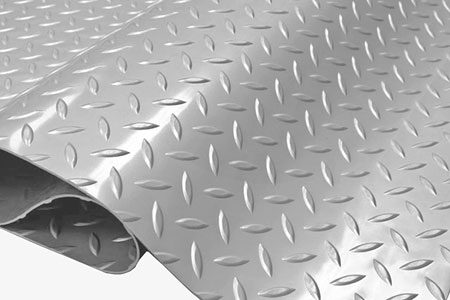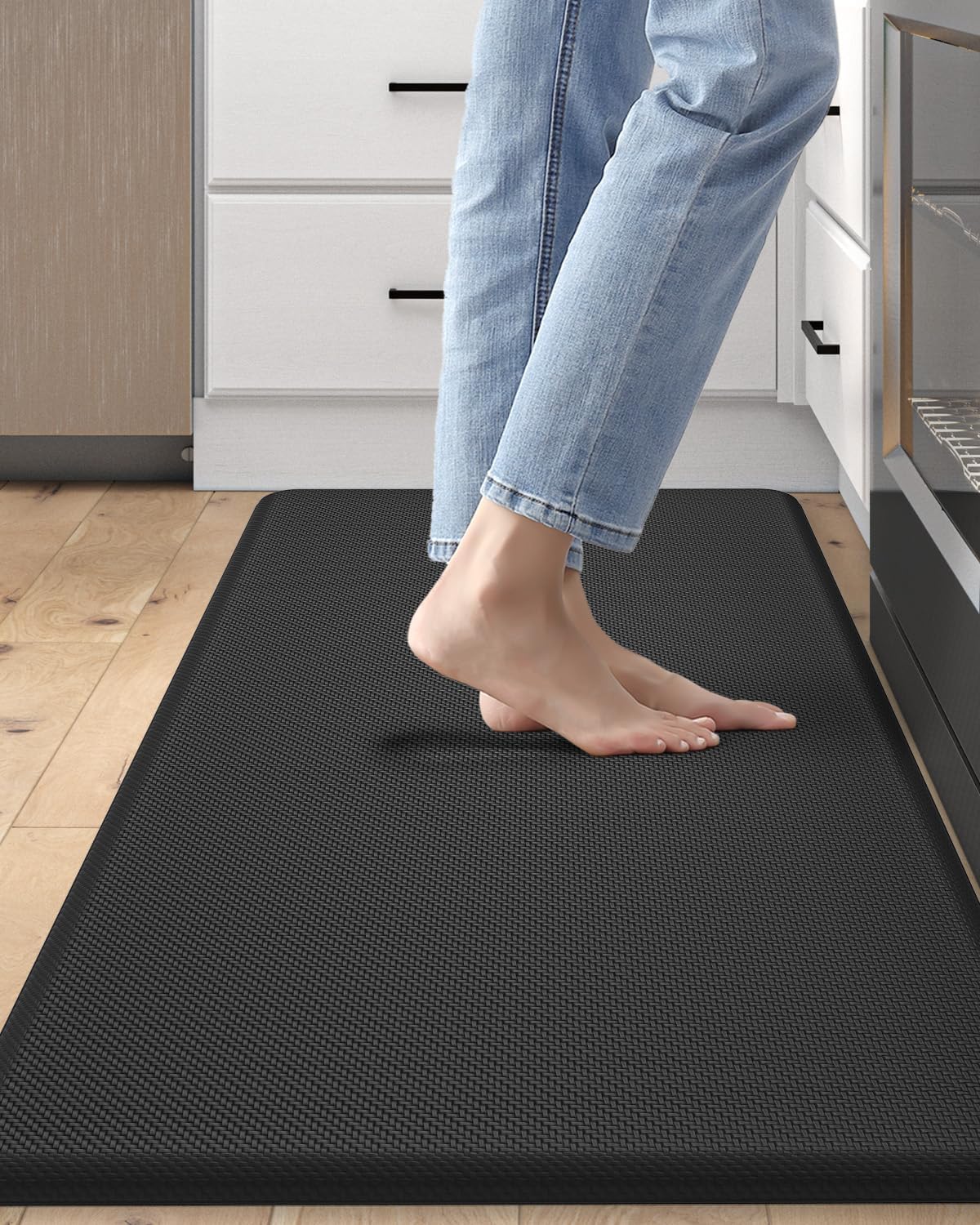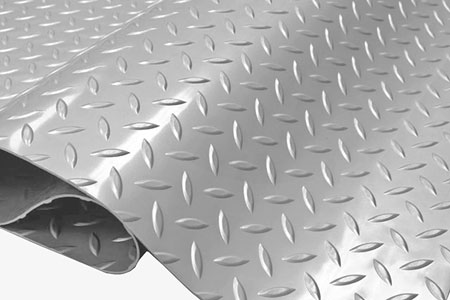A garage floor mat is an essential item for any garage. Even an epoxy floor benefits from mats, because mats absorb water and dirt on our shoes. Garage floor mats will protect the floor from stains, sand, water, ice, mud, debris, dust, and sand.
Decent garage mats have these qualities:
- They are made of durable material
- They are resistant to oil, grease, water, dirt, dust and other substances
- They are easy to clean
Takeaway

- PVC is tough and protects from oil. PVC mats come in rollup and as floor tiles
- Polypropylene mats are really garage floor tiles. They’re similar to PVC, but are softer and therefore quieter.
- Poly backed carpets are the best of both worlds: soft, but protective
- Rubber mats are nice at first but quickly degrade, and they’re hard to clean
- EVA anti-fatigue mats have the same qualities as rubber mats
- Snow melt waterproof mats protect the garage floor from highly corrosive road salt
Has your garage floor already been bitten by the road salt? You might want to see our article: How Do You Fix Garage Floor Spalling and Pitting? and for a more comprehensive article, look at Don’t Fix Your Garage Floor Until You Read This (open in new windows)
Garage Floor Mat Material Options

Garage floor mats can be made of polypropylene, PVC, rubber, foam, vinyl and fiber. Many are some combination of these materials.
PVC is the toughest material, and fiber (which goes into carpet) is the softest. Battery acid won’t cut through PVC, but water will fall through fiber.
All materials need to protect the floor from water and possibly sun. Depending on your climate, you might need the mat to protect from ice, sand and salt. If your car or truck is leaking, then you want a chemical and fluid resistant material.
PVC Roll Up Mats

Two floor coverings that come in PVC are roll up mats and floor tiles. While the roll up mats are “mats,” the floor tiles really are not. Floor tiles are individual squares that require installation.
A PVC mat will withstand battery acid. In exchange for that protection, the surface can be a bit slippery. It’s like when you wax the car, the rain beads up? That’s how fluid acts on PVC.
Since that slipperiness is not safe, manufacturers usually put a texture into the PVC. You will find diamond and coin patterns, for two examples. The raised bumps give PVC a non-slip surface, even when wet.
Material really matters when buying a roll up mat. Some mats have a plastic feel that offer great protection against seepage. Nothing gets through the material, but that makes these mats a bit slippery. Technically, if you wore really slippery shoes on a wet, textured PVC floor mat, you would get some slippage.
Polypropylene Garage Floor Mats are Really Tiles, not Mats

Polypropylene is a commonly used in floor tiles that you install as a set. As I said above, floor tiles are not mats, but I wanted to tell you about polypropylene because it’s an important material.
Polypropylene is plastic, like PVC, but it is a bit softer. It is more likely to allow a motorcycle kickstand to sink into it than PVC will. That softness gives it a better grip than PVC, and it’s also softer than PVC.
Garage Floor Carpets with Polypropylene Backing

That same polypropylene is also found backing garage floor carpet mats. The poly backing is what keeps carpets from falling apart when wet. The fibers don’t have much strength against moisture or fluids. The poly backing prevents a lot of junk from passing through to the floor.
Carped mats add sound protection and warmth the garage floor. They protect the floor from the most damaging sand and salt, making even cheap carpeted mats a good investment. Sand and salt cause pitting and spalling in the concrete. The floor lasts much longer even with a thin carpet on it.
Carpeted mats have a tendency to flip up at the edges. The heavier the carpet backing, the more likely the edges will stay on the floor. Carpet edges are a trip hazard. You can tape them down with extra sticky Gorilla tape. Be sure to de-grease and de-salt the surface before taping. Get a tape color that is the same as your carpet.
A carpet will hold back as much water as its backing allows. A thin polypropylene backing will allow water to seep to the floor. The part that is plastic is waterproof, but think poly backing has space where liquid falls through.
Garage Floor Polyester Carpet Mats with Rubber Backing

The carpet made of polyester with a rubber backing is usually the most attractive choice. When polyester is woven tightly enough it offers a commercial grade protection in a fiber. When backed with rubber it protects against everything but battery acid.
Rubber has a good grip to the floor. It is naturally slip resistant. Since it’s the part of the carpet touching the floor, it holds onto where you put it. A carpet backed by rubber is heavy so it’s going to stay in place.
The polyester carpet fibers on the rubber backing offer sound and dirt protection. Polyester is soft to the touch. The rubber and polyester have “give” when you stand on them.
As always, though, even if the edges are hemmed into a frame, they are a trip hazard. Anything that has a lip is a trip hazard, it’s not the fault of the material really.
The rubber is distanced from the hot tire by the polyester, so it’s not going to melt and stick to the tire.
Garage Floor Mats with Polypropylene Backing

ArmorAll makes a mat they call an “Oil Spill Mat” with a carpeted top and a polypropylene back. They have engineered this mat to absorb spills and contain them in the polypropylene so they don’t reach the floor.
PVC and rubber are probably better carpet backs for containing spills, but that’s is dependent on how the plastic (PVC and polypropylene) are made.
You can get polypropylene backed carpet that holds onto liquids, and you get polypropylene carpet backing that leaks.
Rubber Garage Floor Mats

Rubber is as good as PVC at protecting the floor from most materials except battery acid. PVC is better at protecting the floor from acid. Rubber is softer than PVC, protects from oil and gasoline, and is cheaper than PVC options
Rubber is very heavy, which is nice for keeping it in place. Its edges can roll up if it’s light or cheap. The edges can be a tripping hazard. Some manufacturers make edges extra heavy, and seal the edges to prevent the edges from moving.
Being heavy, rubber is the least likely type of floor mat to move under your feet or the car. Rubber is naturally slip resistant.
Rubber has a nice feel and a soft touch, but it’s not a perfect garage floor material. A hot tire can wreck a rubber mat, especially if the tire turns hard on a rubber surface after highway driving. So it’s a special case, but it can happen.
Personally, I like rubber more than PVC. It is the right combination of floor and sound protection.
To make the weight a non-issue you can get rubber mats that piece together like a jigsaw puzzle. The entire package might be heavy but the individual pieces are lightweight. These are usually found on gym floors but you can use them in the garage.
Anti-Fatigue Garage Floor Mats

A vinyl garage floor mat is not really a garage floor mat. You can buy vinyl for the garage in the form of an “anti-fatigue” mat. These feel like bouncy rubber when you stand on them. The idea is that they’re not as hard as concrete so they make it easier on your back to stand in the garage.
A vinyl mat (which is almost certainly an anti-fatigue mat) is probably not going to have protection properties of PVC and polypropylene, but it’s dependent on the manufacturing process. Vinyl can protect against most garage liquids and dirt, but the vinyl might hang onto the stain more than the other plastics.
A foam (or “EVA”) mat is something you’re more likely to see in a home gym than the garage. It’s a good mat for kneeling on the floor to work on the car or a project.
EVA mats are made of foam which has no liquid protection. However, they’re usually covered in a vinyl or polypropylene that is impervious to most liquids.
EVA mats are soft and squishy. They are too thick to use as walking mats but do protect the floor if you put them under the car. They’re meant to be exercise mats. If liquid and oil do reach through the protect cover, they’ll probably absorb into the foam and ruin it.
Waterproof Mats for Snow Melt

If you are going to drive a snowy car in the garage then get a waterproof mat.
PVC and polypropylene are waterproof plastics. They will hold liquid from reaching the floor. If you need to protect the floor from snow and ice, then you want a PVC or polypropylene floor mat. A waterproof mat protects against spills, leaks and puddles.
A water resistant mat offers some protection but does not guarantee that your garage floor will remain completely dry if it does happen to get wet.
Rubber and polyester are water resistant. Water will soak through them to the floor.
Foam and polyester (carpet) soak up water and transfer it to the floor. A good way to ruin a garage floor seal is to put a carpet down and let it get really wet.









